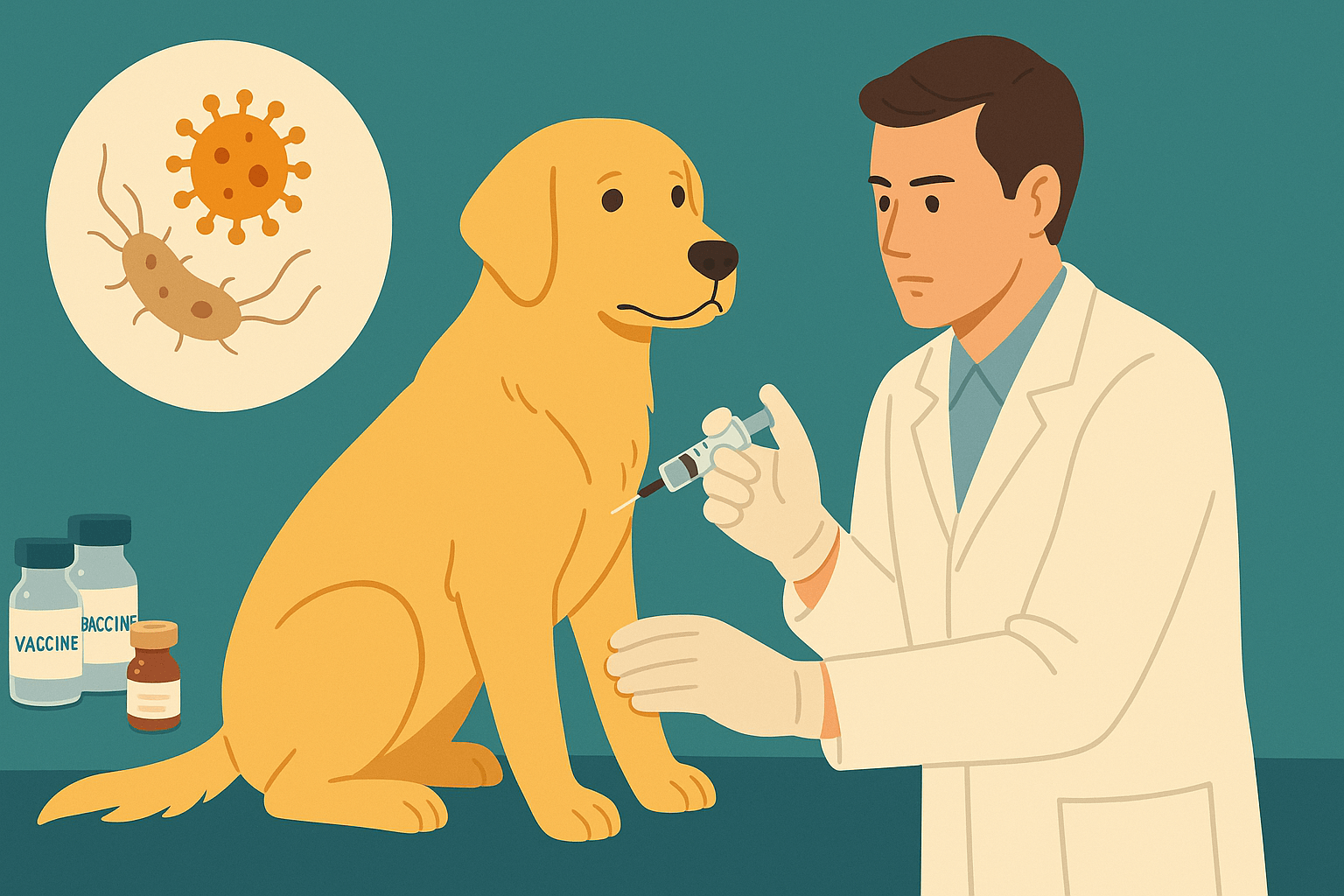Vaccinating your dog is one of the most important things you can do to ensure their long-term health and protect them—and your family—from potentially deadly diseases. Understanding the dog vaccine schedule, knowing dog vaccines names, being aware of annual vaccines for dogs, and recognizing potential adverse reactions to vaccines can help you make informed decisions for your furry friend.
🩺 Why Are Vaccines Important for Dogs?
Vaccines stimulate your dog's immune system to recognize and fight specific infectious agents, such as viruses or bacteria. Without vaccines, dogs are highly vulnerable to diseases that can lead to serious illness or death. Moreover, some diseases are zoonotic (transmissible to humans), such as rabies and leptospirosis, so vaccination also helps protect public health.
📅 Dog Vaccine Schedule: A General Guide
The dog vaccine schedule typically starts when a puppy is about 6–8 weeks old and continues through adulthood. Here’s a common schedule recommended by veterinarians:
Puppy Vaccination Schedule (6–16 Weeks)
| Age | Vaccine | Notes |
|---|---|---|
| 6–8 weeks | DHPP (Distemper, Hepatitis, Parvovirus, Parainfluenza) | First dose |
| 10–12 weeks | DHPP + Leptospirosis (optional) | Booster |
| 12–16 weeks | Rabies (required by law) | One-time vaccine, booster after a year |
| 14–16 weeks | DHPP + Leptospirosis (booster) | Final puppy shots |
Adult Dog Vaccination Schedule
| Age | Vaccine | Frequency |
|---|---|---|
| 1 year | DHPP, Rabies, Leptospirosis | Annual or triennial based on vet advice |
| Annually | Bordetella, Canine Influenza, Lyme | Based on risk exposure |
| Every 1–3 years | DHPP, Rabies | Booster depending on vaccine type |
🐾 Note: Your vet may adjust the schedule based on your dog’s breed, lifestyle, and health history.
💉 Dog Vaccines Name: Core vs Non-Core
Dog vaccines are divided into two categories: core vaccines and non-core vaccines.
Core Vaccines (Essential for All Dogs)
- DHPP (or DA2PP): Distemper, Adenovirus (Hepatitis), Parainfluenza, Parvovirus
- Rabies
Non-Core Vaccines (Based on Risk)
- Leptospirosis
- Bordetella bronchiseptica (Kennel Cough)
- Canine Influenza (H3N2/H3N8)
- Lyme Disease (Borrelia burgdorferi)
- Coronavirus (rarely recommended)
🔁 Annual Vaccines for Dogs
While not all vaccines need to be administered every year, some do. Here are common annual vaccines for dogs:
- Bordetella (especially if boarding or around other dogs)
- Leptospirosis (depending on geographic location)
- Canine Influenza
- Lyme Disease (for dogs in tick-prone areas)
Core vaccines like DHPP and Rabies are often given every 1–3 years depending on your veterinarian’s guidance and local regulations.
⚠️ Adverse Reactions to Vaccines?
While most dogs tolerate vaccines well, some may experience mild to moderate side effects. Here’s what to look out for:
Common Mild Reactions (24–48 hours)
- Soreness at the injection site
- Mild fever
- Decreased appetite
- Lethargy
Less Common But Serious Reactions
- Facial swelling
- Vomiting or diarrhea
- Hives or itching
- Difficulty breathing
- Collapse
🛑 If your dog shows signs of a severe allergic reaction, contact your vet immediately.
🐶 Final Thoughts
Vaccinating your dog is a critical part of responsible pet ownership. By following the dog vaccine schedule, staying informed about the names of dog vaccines, and understanding the need for annual vaccines, you help ensure your pet lives a long, happy, and healthy life. Always consult your veterinarian for a customized vaccination plan.
Frequently Asked Questions (FAQs)
1. What vaccines do dogs need yearly?
2. Can I skip dog vaccines if my dog stays indoors?
3. What if I miss a vaccine booster?
4. Are dog vaccines safe?
5. How much do dog vaccines cost?

About SniffnTail
SniffnTail is your go-to destination for everything pets. From helpful advice, tips, and insights to thoughtfully selected products and resources, we’re here to support pet owners at every stage of their journey. Whether you're caring for a playful pup, a wise old cat, or anything in between, SniffnTail offers tools and knowledge to make pet parenting easier and more joyful.
Related Articles
 Health & Wellness • 5 min read
Health & Wellness • 5 min read3-Minute Daily Dental Care Routine for Busy Pet Parents
Discover a quick dog teeth cleaning routine designed for busy pet owners. Learn easy dog dental care tips to keep your furry friend's smile healthy with just 3 minutes daily.
 Health & Wellness • 7 min read
Health & Wellness • 7 min readHow to Give a Dog a Bath: A Complete Guide (Vet Approved)
Learn the vet-approved, step-by-step guide on how to give your dog a bath comfortably and safely. Tips, do's and don'ts, and expert advice for a happy, clean pup.
 Health & Wellness • 7 min read
Health & Wellness • 7 min readThe Brothers Apothecary Calming K-9 CBD Oil Review 2025: Affordable & Effective Tincture for Dogs
Discover our in-depth Brothers Apothecary CBD oil review for 2025. Learn how this affordable, vet-approved calming tincture helps reduce dog anxiety safely and effectively.

